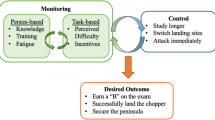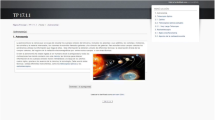Abstract
This paper presents results from an experimental study that examined embedded strategy prompts in digital text and their effects on calibration and metacomprehension accuracies. A sample population of 80 college undergraduates read a digital expository text on the basics of photography. The most robust treatment (mixed) read the text, generated a summary for each page of text, and then was prompted with a metacognitive strategy. The metacognitive treatment received metacognitive strategy prompts only, and the cognitive group implemented the cognitive strategy (summarization) only. A control group read the text with no embedded support. Groups were compared on measures of achievement, attitudes, cognitive load, and metacomprehension and calibration accuracy. Results indicated that a combination of embedded cognitive and metacognitive strategies in digital text improved learner achievement on application-level questions, yielded more accurate predictive calibration, and strengthened the relationship between metacomprehension and performance, all of which are common attributes of an academically successful learner.


Similar content being viewed by others
References
Ackerman, R., & Goldsmith, M. (2011). Metacognitive regulation of text learning: On screen versus on paper. Journal of Experimental Psychology: Applied, 17(1), 18–32. doi:10.1037/a0022086.
Anderson, M. C. M., & Thiede, K. W. (2008). Why do delayed summaries improve metacomprehension accuracy? Acta Psychologica, 128(1), 110–118. doi:10.1016/j.actpsy.2007.10.006.
Ayres, R. (2006). Using subjective measures to detect variations of intrinsic load within problems. Learning and Instruction, 16, 389–400.
Bannert, M., Hildebrand, M., & Mengelkamp, C. (2009). Effects of a metacognitive support device in learning environments. Computers in Human Behavior, 25(4), 829–835. doi:10.1016/j.chb.2008.07.002.
Bannert, M., & Reimann, P. (2011). Supporting self-regulated hypermedia learning through prompts. Instructional Science, 40(1), 193–211. doi:10.1007/s11251-011-9167-4.
Berthold, K., Nückles, M., & Renkl, A. (2007). Do learning protocols support learning strategies and outcomes? The role of cognitive and metacognitive prompts. Learning and Instruction, 17(5), 564–577. doi:10.1016/j.learninstruc.2007.09.007.
Bol, L., & Hacker, D. J. (2012). Calibration research: Where do we go from here? Frontiers in Psychology, 3(229), 1–6. doi:10.3389/fpsyg.2012.00229.
Bol, L., Hacker, D. J., O’Shea, P., & Allen, D. (2005). The influence of overt practice, achievement level, and explanatory style on calibration accuracy and performance. The Journal of Experimental Education, 73(4), 269–290. doi:10.3200/JEXE.73.4.269-290.
Bol, L., Riggs, R., Hacker, D. J., Dickerson, D., & Nunnery, J. A. (2010). The calibration accuracy of middle school students in math classes. Journal of Research in Education, 21, 81–96.
Chiang, E. S., Therriault, D. J., & Franks, B. A. (2009). Individual differences in relative metacomprehension accuracy: Variation within and across task manipulations. Metacognition Learning, 5(2), 121–135. doi:10.1007/s11409-009-9052-6.
Dillon, A. (1994). Designing usable electronic text: Ergonomic aspects of human information usage. London: Taylor & Francis.
Doctorow, M., Wittrock, M. C., & Marks, C. (1978). Generative processes in reading comprehension. Journal of Educational Psychology, 70(2), 109–118. doi:10.1037/0022-0663.70.2.109.
Dunlosky, J., & Lipko, A. R. (2007). Metacomprehension: A brief history and how to improve its accuracy. Current Directions in Psychological Science, 16(4), 228–232. doi:10.1111/j.1467-8721.2007.00509.x.
Fiorella, L., Vogel-Walcutt, J. J., & Fiore, S. (2012). Differential impact of two types of metacognitive prompting provided during simulation-based training. Computers in Human Behavior, 28, 696–702. doi:10.1016/j.chb.2011.11.017.
Flavell, J. H. (1979). Metacognition and cognitive monitoring: A new era of cognitive-development inquiry. American Psychologist, 34(10), 906–911. doi:10.1037//0003-066X.34.10.906.
Garner, R. (1987). Metacognition and reading comprehension. Norwood, NJ: Ablex.
Gerjets, P., Scheiter, K., & Catrambone, R. (2006). Can learning from molar and modular worked examples be enhanced by providing instructional explanations and prompting self-explanations? Learning and Instruction, 16(2), 104–121. doi:10.1016/j.learninstruc.2006.02.007.
Glenberg, A. M., & Epstein, W. (1985). Calibration of comprehension. Journal of Experimental Psychology: Learning, Memory, and Cognition, 11(4), 702–718. doi:10.1037//0278-7393.11.1-4.702.
Glenberg, A. M., Sanocki, T., Epstein, W., & Morris, C. (1987). Enhancing calibration of comprehension. Journal of Experimental Psychology: General, 116, 119–136.
Grabowski, B. L. (2004). Generative learning contributions to the design of instruction and learning. In D. Jonassen & Association for Educational Communications and Technology (Eds.), Handbook of research on educational communications and technology (pp. 719–743). Mahwah, NJ: Erlbaum Associates.
Hacker, D. J., Bol, L., & Bahbahani, K. (2008). Explaining calibration accuracy in classroom contexts: The effects of incentives, reflection, and explanatory style. Metacognition and Learning, 3, 101–121. doi:10.1007/s11409-008-9021-5.
Johnsey, A., Morrison, G. R., & Ross, S. M. (1992). Using elaboration strategies training in computer-based instruction to promote generative learning. Contemporary Educational Psychology, 17(2), 125–135. doi:10.1016/0361-476X(92)90054-3.
Jonassen, D. H. (1985). Relating cognitive styles to independent study. International Journal of Instructional Media, 12(4), 271–281.
Junco, R., & Cotton, S. (2011). Perceived academic effects of instant messaging use. Computers & Education, 56(2), 370–378. doi:10.1016/j.compedu.2010.08.020.
Koriat, A. (2000). The feeling of knowing: Some metatheoretical implications for consciousness and control. Consciousness and Cognition, 9, 149–171.
Kruger, J., & Dunning, D. (1999). Unskilled and unaware of it: How difficulties in recognizing one’s own incompetence lead to inflated self-assessments. Journal of Personality and Social Psychology, 77(6), 1121–1134. doi:10.1037//0022-3514.82.2.189-192.
Lee, H. W., Lim, K. Y., & Grabowski, B. L. (2010). Improving self-regulation, learning strategy use, and achievement with metacognitive feedback. Educational Technology Research and Development, 58(6), 629–648. doi:10.1007/s11423-010-9153-6.
Li, C., Poe, F., Potter, M., Quigley, B., & Wilson, J. (2011). UC libraries academic e-book usage survey. UC Office of the President: California Digital Library. Retrieved from: http://www.escholarship.org/uc/item/4vr6n902.
Lin, L.-M., & Zabrucky, K. M. (1998). Calibration of comprehension: Research and implications for education and instruction. Contemporary Educational Psychology, 23, 345–391. doi:10.1006/ceps.1998.0972.
Lin, L.-M., Zabrucky, K., & Moore, D. (1997). The relations among interest, self-assessed comprehension, and comprehension performance in young adults. Reading Research and Instruction, 36(2), 127–139.
Maki, R. H. (1998). Test predictions over text material. In D. J. Hacker, J. Dunlosky, & A. C. Graesser (Eds.), Metacognition in educational theory and practice (pp. 117–144). Mahwah, NJ: Erlbaum.
Maki, R. H., & Berry, S. L. (1984). Metacomprehension of text material. Journal of Experimental Psychology: Learning, Memory, and Cognition, 10(4), 663–679. doi:10.1037//0278-7393.10.4.663.
Maki, R. H., Foley, J. M., Kajer, W. K., Thompson, R. C., & Willert, M. G. (1990). Increased processing enhances calibration of comprehension. Journal of Experimental Psychology: Learning, Memory, and Cognition, 16, 609–616.
Maki, R. H., & Serra, M. (1992). The basis of test predictions for text material. Journal of Experimental Psychology: Learning, Memory, and Cognition, 18, 116–126. doi:10.1037//0278-7393.18.1.116.
Miller, J. R., Nutting, A. W., & Baker-Eveleth, L. (2012). The determinants of electronic textbook use among college students. Cornell Higher Education Research Institute. Retrieved from http://author.ilr.cornell.edu/cheri/upload/cheri_wp147.pdf.
Mokhtari, K., & Reichard, C. A. (2002). Assessing students’ metacognitive awareness of reading strategies. Journal of Educational Psychology, 94(2), 249–259. doi:10.1037//0022-0663.94.2.249.
Nelson, T. O. (1984). A comparison of current measures of feeling-of-knowing accuracy. Psychological Bulletin, 95, 109–133. doi:10.1037//0033-2909.95.1.109.
Palinscar, A. S., & Brown, A. L. (1984). Reciprocal teaching of comprehension-fostering and comprehension-monitoring activities. Cognition and Instruction, 1(2), 117–175.
Pintrich, P. R. (2002). The role of metacognitive knowledge in learning, teaching, and assessing. Theory into Practice, 41(4), 219–225.
Rigney, J. W. (1978). Learning strategies: A theoretical perspective. In J. H. F. O’Neill (Ed.), Learning strategies (pp. 165–206). New York: Academic Press.
Salomon, G. (1984). Television is “easy” and print is “tough”: The differential investment of mental effort in learning as a function of perceptions and attributions. Journal of Educational Psychology, 76(4), 647–658. doi:10.1037/0022-0663.76.4.647.
Schraw, G. (2009). Measuring metacognitive judgments. In D. J. Hacker, J. Dunlosky, & A. C. Graesser (Eds.), Handbook of metacognition in education (pp. 415–429). New York: Routledge.
Schugar, J. T., Schugar, H., & Penny, C. (2011). A nook or a book: Comparing college students’ reading comprehension level, critical reading, and study skills. International Journal of Technology in Teaching and Learning, 7(2), 174–192.
Sitzmann, T., & Ely, K. (2010). Sometimes you need a reminder: The effects of prompting self-regulation on regulatory processes, learning, and attrition. Journal of Applied Psychology, 95(1), 132–144. doi:10.1037/a0018080.
Spehn, M. K., & Reder, L. M. (2000). The unconscious feeling of knowing: A commentary on Koriat’s paper. Consciousness and Cognition, 9, 187–192. doi:10.1006/ccog.2000.0435.
Sweller, J. (1988). Cognitive load during problem solving: Effects on learning. Cognitive Science, 12, 257–285.
Sweller, J., Van Merrienboer, J. J. G., & Paas, F. (1998). Cognitive architecture and instructional design. Educational Psychology Review, 10, 251–295.
Thiede, K. W., & Anderson, M. C. (2003). Summarizing can improve metacomprehension accuracy. Contemporary Educational Psychology, 28(2), 129–160. doi:10.1016/S0361-476X(02)00011-5.
van den Boom, G., Paas, F., van Merrienboer, J., & van Gog, T. (2004). Reflection prompts and tutor feedback in a web-based learning environment: Effects on students’ self-regulated learning competence. Computers in Human Behavior, 20, 551–567.
van Gog, T., Kester, L., & Paas, F. (2010). Effects of concurrent monitoring on cognitive load and performance as a function of task complexity. Applied Cognitive Psychology, 25(4), 584–587. doi:10.1002/acp.1726.
Veenman, M. V. J., Elshout, J. J., & Busato, V. V. (1994). Metacognitive mediation in learning with computer-based simulations. Computers in Human Behavior, 10, 93–106.
Walczyk, J. J., & Hall, V. C. (1989). Effects of examples and embedded questions on the accuracy of comprehension self-assessments. Journal of Educational Psychology, 81(3), 435–437. doi:10.1037//0022-0663.81.3.435.
Weisberg, M. (2011). Student attitudes and behaviors towards digial textbooks. Publishing Research Quarterly, 27(2), 188–196.
Wiley, J., Griffin, T. D., & Thiede, K. (2005). Putting the comprehension in metacomprehension. The Journal of General Psychology, 132(4), 408–428.
Wittrock, M. C., & Alesandrini, K. (1990). Generation of summaries and analogies and analytic and holistic abilities. American Educational Research Journal, 27(3), 489–502. doi:10.2307/1162933.
Author information
Authors and Affiliations
Corresponding author
Appendix: Metacognitive prompt questions
Appendix: Metacognitive prompt questions
Self-monitoring questions
-
1.
Am I distracted during learning the material?
-
2.
Am I focusing my mental effort on the material?
-
3.
Do I have any thoughts unrelated to the material that interfere with my ability to focus on the text?
-
4.
Are the summaries I am generating helping me to learn the material? (applicable only to the subgroup experiencing Cognitive—Metacognitive prompting sequence).
-
5.
Do I understand all of the main points?
Rights and permissions
About this article
Cite this article
Reid, A.J., Morrison, G.R. & Bol, L. Knowing what you know: improving metacomprehension and calibration accuracy in digital text. Education Tech Research Dev 65, 29–45 (2017). https://doi.org/10.1007/s11423-016-9454-5
Published:
Issue Date:
DOI: https://doi.org/10.1007/s11423-016-9454-5




